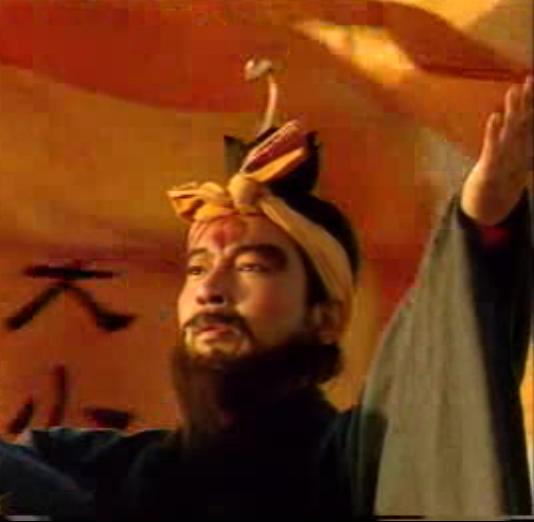
Zhang Jue, leader of the Yellow Turban Rebellion
as seen on TV series “Romance of the Three Kingdoms”
Photo by: wikipedia Creative Commons
Founded by the rebel leader Liu Bang, the Han Dynasty was established as the second imperial dynasty of China. This dynasty was preceded by the Qin dynasty, the period where the Great Wall of China was built. During the Han Dynasty, a significant event referred to as the Yellow Turban Rebellion occurred. China was headed by Emperor Ling when this peasant revolt broke out. The rebels all wore yellow scarves around their heads which is the reason why the Yellow Turban Rebellion is also referred to as Yellow Scarves Rebellion. This momentous event in China also holds some significance with Taoism.
During this time, the people of China were suffering from poverty and famine. An agrarian crisis forced the settlers from the north to seek better life in the south. Rich and powerful landowners took advantage of the large number of unemployed farmers and former military soldiers by exploiting them. Because of this, the landowners were able to gain a lot of fortune while the poor settlers from the north continued to become poorer and poorer. The situation was further worsened by the high taxes imposed on the peasants as well as floods along the Yellow River.
The Han Dynasty government itself was beginning to weaken. The Emperor was being influenced by the court eunuchs for their own personal gains. In fact, the court eunuchs became so influential that the Ten Attendants was formed. This group is comprised by the 10 most powerful and influential eunuchs. Because of the widespread famine and corruption, the people lost their trust in the government which sparked the idea of a rebellion.
The Yellow Turban Rebellion had some significance in the history of Taoism because it was led by Zhang Jue, someone who is deeply associated with Taoism. Zhang Bao and Zhang Liang, the two brothers of Zhang Jue, also helped lead the revolution. The brothers were responsible for establishing a Taoist religious sect in the province of Shanding, China. As healers who accepted to treat people who could not afford to pay them, the Zhang brothers saw through the government’s inability to serve and protect its people. Furthermore, the groups had allies within the emperor’s court. This made the preparations inconspicuous. Plans to revolt against the emperor were made right under his nose.
The Zhang brothers tried to spread the teachings of Taoism including equal land distribution and equal rights. It was easier for them to spread their principles as they were healers who treated peasants without payment. Zhang Jue was called the General of Heaven during the revolution. But while he was working as a healer, he claimed himself as the “Great Teacher” who uses a form of Taoism in order to cure people’s illness. This includes confessing one’s sins as well as healing by faith. Followers of the Way of Supreme Peace believed in the God Huang Liang. Zhang Jue claimed that the God has given him a sacred book called Crucial Keys to the Way of Peace.
The rebel’s military forces were concentrated in three areas. The first area was right above the Yellow River. This was also the group that was led by the Zhang brothers. Another area was in the You Province particularly in Guang yang and Zhuo. These areas were located within the neighborhood of the present day Beijing. Runan, Ying chuan, and Nanyang collectively was the third area which the rebels focused their forces. The rebels were a big threat to the Han dynasty. He Jin, the half-brother of Empress He, was chosen as the General in chief. Separate forces were dispatched to deal with the uprisings in the three locations.
Rebel leacher Zhang Mancheng was successful in defeating the Grand Administrator of Nanyang. The rebels enjoyed success in defeating the forces of the government. But soon, they tables started to turn against them. The Zhang brothers were killed and the rebels were eventually defeated. After their defeat, several uncoordinated rebellions still broke out until it was suppressed by Cao Cao in the year 192.